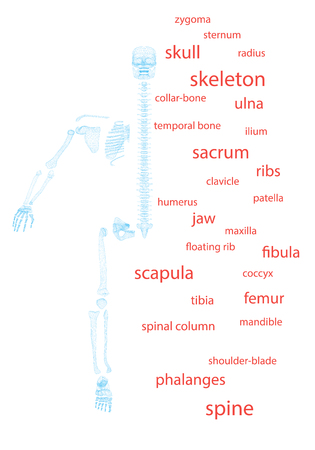Understanding Bone Health in the UK Context
Bone health is a growing concern across the United Kingdom, with conditions such as osteoporosis and increased fracture risk affecting millions of Britons, particularly as they age. The UK’s climate, dietary habits, and lifestyle choices all play significant roles in influencing bone strength. Limited sunlight exposure, especially during the winter months, can lead to lower levels of vitamin D—a crucial nutrient for calcium absorption and bone maintenance. Additionally, traditional British diets may sometimes lack sufficient sources of calcium and other micronutrients essential for optimal bone health. Factors such as sedentary lifestyles, higher rates of smoking and alcohol consumption, and an ageing population further contribute to the prevalence of bone-related conditions. As a result, public health authorities like the NHS have highlighted the importance of proactive measures to maintain bone strength throughout life, including appropriate supplementation when necessary.
2. Key Nutrients for Bone Health
Maintaining strong and healthy bones relies on several essential vitamins and minerals, with calcium and vitamin D being the most prominent. According to UK experts and the NHS, focusing on a balanced diet that incorporates these nutrients is the first line of defence against bone-related conditions such as osteoporosis. However, it’s equally important to recognise other micronutrients that play supporting roles in bone metabolism.
Calcium: The Foundation of Bone Structure
Calcium is a primary building block for bones and teeth. In the UK, dairy products like milk, cheese, and yoghurt are commonly consumed sources. For those who prefer plant-based options, fortified plant milks (such as soya or oat), tofu made with calcium sulphate, and certain leafy greens like kale also provide valuable amounts.
Dietary Sources of Calcium in the UK
| Food Source | Average Calcium Content (per 100g) |
|---|---|
| Semi-skimmed milk | 120mg |
| Cheddar cheese | 720mg |
| Kale (boiled) | 150mg |
| Fortified soya drink | 120mg |
| Tofu (with calcium) | 350mg |
Vitamin D: Supporting Calcium Absorption
The NHS highlights vitamin D as critical for helping the body absorb calcium efficiently. Sunlight exposure on the skin is the main source for most people in the UK, especially from late March to September. However, during autumn and winter months, dietary sources become more important due to reduced sunlight. Oily fish (such as salmon and mackerel), eggs, red meat, and fortified foods like breakfast cereals are recommended by UK health authorities.
Recommended Dietary Sources of Vitamin D in the UK
| Food Source | Average Vitamin D Content (per 100g) |
|---|---|
| Salmon (cooked) | 10µg |
| Mackerel (cooked) | 8µg |
| Egg yolk | 5µg (per yolk) |
| Fortified breakfast cereal | 3–5µg (varies by brand) |
| Margarine (fortified) | 7.5µg |
Other Important Nutrients for Bones
The NHS also advises attention to other micronutrients:
- Vitamin K: Found in green leafy vegetables such as broccoli, spinach, and cabbage; supports bone mineralisation.
- Magnesium: Present in whole grains, nuts, seeds, and green vegetables; contributes to normal bone structure.
- Zinc: Sourced from meat, shellfish, dairy foods, bread, and cereal products; involved in bone tissue renewal.
A Balanced Approach to Bone Health Supplements in the UK Context
A varied diet including these nutrients typically meets daily requirements for most people living in the UK. However, targeted supplementation may be recommended by healthcare professionals for individuals at risk of deficiency—particularly older adults, those with limited sun exposure or specific dietary restrictions. Always consult a GP or registered dietitian before starting any supplement regime.

3. Evidence-Based Supplement Recommendations from UK Experts
When it comes to supporting bone health, UK health authorities and nutritionists consistently emphasise evidence-based guidance. The NHS and the British Dietetic Association recommend a balanced approach, prioritising diet first but recognising the role of supplements where necessary. According to the 2020 National Diet and Nutrition Survey, a significant proportion of adults in the UK fail to meet recommended intakes for key nutrients such as vitamin D and calcium—two of the most crucial elements for maintaining strong bones.
Vitamin D: National Guidance and Scientific Backing
The NHS advises that everyone in the UK consider taking a daily vitamin D supplement, particularly during autumn and winter when sunlight exposure is limited. This recommendation is grounded in robust research showing that low vitamin D levels increase the risk of bone weakness and fractures. Official guidance suggests a daily supplement containing 10 micrograms (400 IU) of vitamin D for adults and children over one year old.
Calcium: Dietary Sources Preferred, Supplements as Needed
UK experts stress obtaining calcium primarily through food sources—such as dairy products, green leafy vegetables, and fortified plant-based alternatives. However, if dietary intake is insufficient or an individual has increased requirements (for example, post-menopausal women or those with osteoporosis), supplementation may be appropriate. The NHS recommends a daily intake of 700 mg for adults, noting that excessive supplementation can pose health risks such as kidney stones.
Other Nutrients: Magnesium, Vitamin K, and Beyond
While vitamin D and calcium receive the most attention, research from Public Health England also highlights magnesium and vitamin K as supportive nutrients for bone metabolism. However, routine supplementation of these nutrients is not widely recommended unless a deficiency is diagnosed by a healthcare professional.
Summary Table: Key Supplement Recommendations
- Vitamin D: 10 micrograms/day for most adults and children over one year old
- Calcium: 700 mg/day from diet; supplement only if intake is inadequate
- Magnesium & Vitamin K: Only if prescribed after assessment
Expert Consensus
The prevailing view among UK experts is that supplements should complement—not replace—a healthy diet. They encourage discussing personal needs with GPs or registered dietitians before starting any new supplement regime. This ensures recommendations are tailored to individual health status, lifestyle, and existing medical conditions.
4. NHS Advice on Supplement Use
The NHS provides clear guidance on the use of supplements for bone health, tailored to specific groups within the UK population. Their recommendations are based on current evidence and address the needs of those who may be at risk of vitamin or mineral deficiencies that impact bone strength and health.
Public Recommendations by Group
| Group | NHS Supplement Guidance |
|---|---|
| Older Adults (65+) | Advised to take a daily supplement containing 10 micrograms of vitamin D, particularly during autumn and winter when sunlight exposure is limited. |
| People with Little Sun Exposure | Recommended to take a 10 microgram vitamin D supplement all year round, as they may not make enough from sunlight alone. This includes people in care homes or those who cover most of their skin when outdoors. |
| Children (1-4 years) | Should be given a daily 10 microgram vitamin D supplement throughout the year. |
| Babies (up to 1 year) | If breastfed, should receive a daily 8.5 to 10 microgram vitamin D supplement. Formula-fed babies consuming more than 500ml of infant formula daily do not require additional supplementation as formula is fortified. |
| People at Risk of Deficiency | This includes individuals with darker skin tones, people with certain medical conditions affecting absorption, and those with restricted diets. The NHS advises discussing individual needs with a GP or dietitian. |
Additional Notes on Calcium
The NHS generally advises that most people can meet their calcium needs through a balanced diet including dairy products, green leafy vegetables, and fortified foods. Supplements are not routinely recommended unless dietary intake is inadequate or there are specific medical reasons.
Safe Use and Professional Guidance
The NHS cautions against excessive supplementation, especially without professional advice. High intakes of vitamin D or calcium can cause health issues. It is always best to consult with a healthcare provider before starting any new supplement regime, particularly for children, older adults, and people with existing health conditions.
5. How to Choose and Use Bone Health Supplements in the UK
When considering supplements for bone health, UK residents should approach selection and use with care, drawing on guidance from local experts and the NHS. Here are practical steps for making informed choices:
Understanding UK Regulations and Quality Standards
The UK regulates supplements under food law, overseen by bodies like the Food Standards Agency (FSA) and Medicines and Healthcare products Regulatory Agency (MHRA). Always look for products clearly labelled with batch numbers, best-before dates, and a UK address or contact information. Preferably, choose brands with third-party testing or those registered with recognised quality assurance schemes such as the MHRA’s Traditional Herbal Registration (THR) mark.
Assessing Your Personal Needs
Before purchasing any supplement, evaluate your individual requirements. The NHS recommends most people get nutrients from a balanced diet; supplements may only be necessary for certain groups—such as older adults, vegans, or those with specific medical needs. Consulting your GP or pharmacist is wise before starting any new supplement regimen.
Key Ingredients to Look For
The most commonly recommended supplements for bone health in the UK are vitamin D and calcium. The NHS suggests a daily vitamin D supplement of 10 micrograms (400 IU), especially during autumn and winter or if you have limited sun exposure. For calcium, adults typically need around 700mg per day from all dietary sources; supplementation is rarely required unless your diet is insufficient.
Practical Tips for Purchasing
When buying bone health supplements in the UK: choose reputable high-street chemists or established online retailers; avoid unverified sellers or imported products not compliant with UK standards; check for clear dosage instructions in milligrams (mg) or micrograms (μg); ensure packaging is intact and tamper-evident.
Integrating Supplements into Your Daily Routine
To maximise benefit and safety, take supplements at the same time each day—many people find breakfast easiest. Follow dosage instructions precisely; more is not always better and excessive intake can be harmful. Consider using a pill organiser or setting reminders on your phone to help establish consistency.
Ongoing Monitoring
Regularly review your supplement needs, especially if your diet or health status changes. Inform your GP of all supplements you take to avoid interactions with prescribed medications or over-supplementation. This careful, evidence-based approach ensures your bone health strategy aligns with best practice and current UK guidelines.
6. Potential Risks and When to Seek Professional Guidance
While supplements for bone health can offer benefits, over-supplementation poses real risks that are important to understand within the UK context. Taking more than the recommended dose of calcium or vitamin D, for instance, may lead to side effects such as kidney stones, hypercalcaemia (high calcium levels in the blood), or interference with other medications. The NHS and British experts consistently emphasise that more is not always better, and exceeding safe limits can compromise your health rather than improve it.
Additionally, certain groups—such as people with chronic illnesses, those already on prescribed medications, and pregnant or breastfeeding women—may be at higher risk of adverse effects from supplements. It’s essential to recognise that self-prescribing vitamins and minerals without proper assessment could mask underlying conditions or result in harmful interactions.
The UK’s healthcare system encourages individuals to seek guidance from GPs, pharmacists, or registered dietitians before starting any new supplement regimen. These professionals can assess your individual needs based on factors like age, dietary habits, lifestyle, and medical history. They are also best placed to recommend appropriate testing if there are concerns about vitamin D or calcium deficiencies.
If you experience symptoms such as persistent nausea, abdominal pain, confusion, or unusual fatigue after beginning a supplement, it’s crucial to seek medical advice promptly. Equally, if you belong to a group at greater risk of osteoporosis or have specific concerns about bone health, discussing options with an NHS professional ensures safe and effective care tailored to your circumstances.
In summary, while supplements play a role in supporting bone health for some people in the UK, their use should always be grounded in evidence-based recommendations and professional oversight. Consulting with healthcare experts helps mitigate risks and supports long-term wellbeing in line with current NHS guidance.

